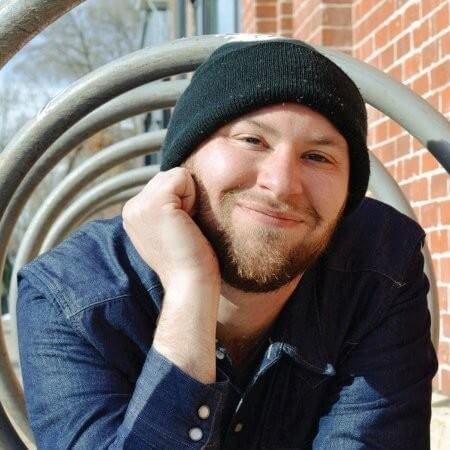Alright – so today we’ve got the honor of introducing you to Ian Fishman. We think you’ll enjoy our conversation, we’ve shared it below.
Ian, appreciate you joining us today. Risk taking is something we’re really interested in and we’d love to hear the story of a risk you’ve taken.
So, the cliche answer — and the first one that came to mind — is starting my business, and going full-time as a voiceover actor. I’d been working as the managing director for a touring children’s theater company and doing voice and comedy work on the side, and really thought that was what I was going to settle into for a long-term future. I loved the company, I loved the mission, I loved my coworkers… the only thing I really wasn’t into was the job itself. All the while, I’d continued building my comedy and voice acting career, and when I saw the writing on the wall that my position was going to be eliminated, I said to myself, “If not now, when? If I’m not going to take the big swing and try to do this full-time, when will I?” When it seemed like my options were to either get a full-time job I didn’t really care about and keep moonlighting, or actually go for the thing I wanted and build my life around it… at that point, it’s almost not a choice. You gotta go for it, right? If you don’t believe in you, who will?
But a bigger risk, and a risk that ultimately led to much of my happiness and fulfillment, was working very intentionally with psychedelics. Both of my parents have been sober for a long time, but as a teenager when I had questions, they’d been extremely honest with me about their experiences with all drugs — the good, the bad, and the ugly. They knew that the best way for me to learn from their mistakes and choices was to be blunt and upfront about them, and I am so grateful for that, because when I got to a point in my life when I wanted to experiment, I had a much better road map than so many people around me. Drug “education” in the ’90s was “Don’t do it, you’ll go to jail and ruin your brain and body,” and it’s obviously so much more nuanced than that. “Drugs,” at the end of the day, are just tools. You need to work with them with intelligence and care — just like you wouldn’t fire up a chainsaw and start swinging it around unless you were looking to hurt yourself, you really shouldn’t just up and take any drug without doing some research, knowing what it is that you’re looking for, and setting yourself up for “success” — being in the right mindset and physical setting to get the most out of your experience.
Luckily, I’d developed close friendships with some people who took those lines of thought seriously — they didn’t offer me my first experience, so much as I had to ask; and when I did, we had multiple conversations about what I was seeking and why, and about my mental and physical health. It meant that going into that first experience — and all subsequent ones, for that matter — I was crystal clear about what I was seeking, and had a support network to help me get there. But at the end of the day, I only have one brain and neural system, and if I’m going to shine a light in my attics and poke around, I better be ready for whatever may come. Buy the ticket, take the ride. You can’t undo that choice.
And it’s not like it’s all sunshine and unicorns, where I took psilocybin once and self-actualized, or had a single session on MDMA and suddenly fell in love with the world as-is and lived happily ever after. The sessions where I struggled the most — the “bad trips” — were where I learned the most; like how all humans are deserving of love and are not defined by single actions, or that acting is one of the only things that made me truly happy, and that I not only should pursue my happiness for fulfillment, but that I need to to become who I am meant to be. I am so thankful I made that leap to explore myself in that way.
As always, we appreciate you sharing your insights and we’ve got a few more questions for you, but before we get to all of that can you take a minute to introduce yourself and give our readers some of your background and context?
I’ve been an actor in one form or another since 2001, when I fell into doing improv comedy in high school. Theater was one the first places I found where I really felt free — free to be myself, and free of my anxiety. A place where being a big, loud extrovert with ADHD could be a benefit instead of a drawback. Until I found theater, comedy, and punk rock, I had a pretty hard time relaxing enough into myself to actually be myself. Thankfully, through those, I started finding friends who understood and felt the same way. Being challenged in a positive way by people who care about you is a beautiful thing.
I earned my BFA-Acting from Pace in New York, and after graduating, slowly built my voiceover chops through classes and sketch comedy — whenever a voiceover was needed, I more often than not became the one to do it, and eventually I got good enough at making fun of commercials that I started getting paid to do them.
When I’m not in the booth, I’m also a comedy writer, director, and editor. I was one of the editors of the punk rock satire The Hard Times for over 5 years [where I was the resident “aging punk” for a couple years], and for the cannabis satire site Oregano for another year. I was also the director for Late Nights Minneapolis, a live, local late-night show, for a number of years.
Any advice for growing your clientele? What’s been most effective for you?
Don’t forget in your marketing a) that you’re talking to fellow human beings, who much like you, probably don’t want to be “marketed” to in the traditional sense, and b) marketing is really all about being a real person, solving a problem for another person. I’m a huge fan of personalized connections via email and LinkedIn — all of my clients can easily see and hear what I offer through those by looking at my profile, so when we interact, it’s far more about getting to know them as people and seeing if and how I can help make their job easier.
In that sense, qualified, selfless referrals are a great gift to give potential clients. A client may not need you right now, but they may need a friend or colleague of yours who can help them out immediately. Then, when that client does need whatever it is you offer, they’re so much more likely to come to you — you already helped them, even when it didn’t benefit you directly. That’s just what good friends and good people do.
We’d love to hear a story of resilience from your journey.
Student loans, man. They were absolutely killer.
I’ve been really fortunate that I’ve wanted to do the same thing for so long, to be an actor. It means that after 22 years, I can see and feel real headway, and live off the labor I put in. But trying to develop that as a career, while living in New York, is hard enough financially. Add student loans to that, and it’s highly likely you’re barely hanging on to survive. I was financially crippled for almost 20 years from my student loans, which is sadly not unusual at all these days.
Like most artists in that spot, that meant developing an entire second career that I never really wanted. And each of those is hard enough, right? Developing your chops as an artist is hard enough. Living in New York is hard enough. Mustering the willpower to go to a survival job you don’t care about is hard enough. Granted, I alone am responsible for my choices, but I don’t think enough people realize how hard that is and can be to do. There wasn’t anything particularly unusual or outstanding about my struggle with it, but all artists, especially those trapped in expensive places, go through constant cycles of self-doubt and despair, all to do the thing you love. It can break you if you’re not careful, and that prospect led me to some pretty dark places at times.
But when I realized I’d racked $82,000 in debt from a Bachelor’s degree, and that my parents were on the hook for it if I defaulted, I made a pact with myself: that I was going to pay off my loans by 40, and get debt-free through my trade as an actor. That’s a large part of what led to the move to Minneapolis, needing a city with a better cost/standard of living ratio that had lots of acting opportunities. That felt very counterintuitive — leaving New York to find a way to be a full-time actor — and was doubly hard because so much of my identity was wrapped up in that notion of being a “successful actor in New York.” But leaving was easily the best move I’d made, and enabled me to do the thing I actually wanted to do.
I’m very happy to say that, at 39, I’ve been debt free for almost 3 years, and I’ve been a full-time voice actor for more than 8. I truly love my business and what I get to do every day, and I’m incredibly fortunate to live the life I do.
Contact Information:
- Phone: (651) 347-4212
- Email: [email protected]
- Instagram: https://www.instagram.com/fishsoundsvo/
- LinkedIn: https://www.linkedin.com/in/ianfishman/
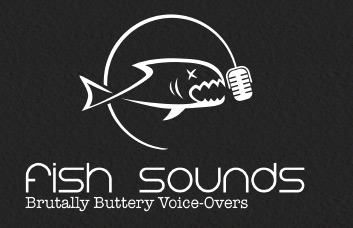
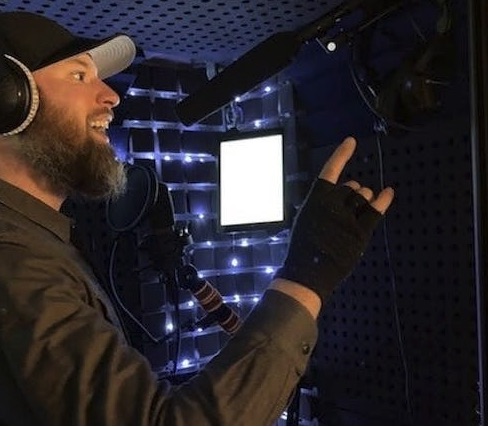
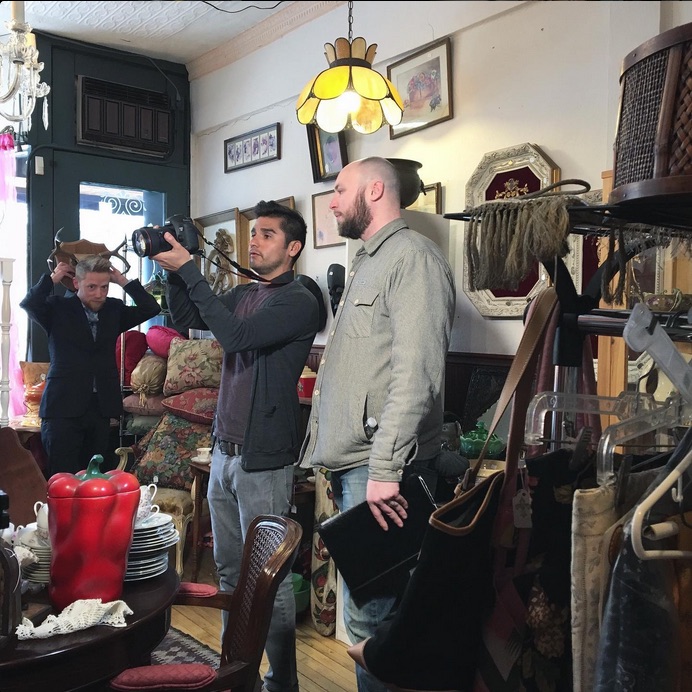
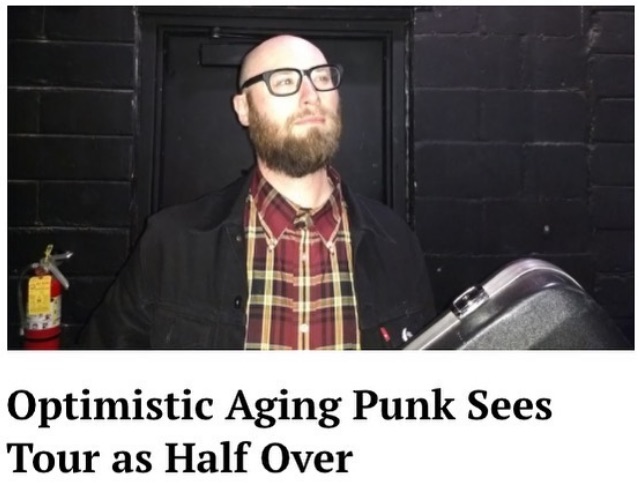
Suggest a Story: CanvasRebel is built on recommendations from the community; it’s how we uncover hidden gems, so if you or someone you know deserves recognition please let us know here.


